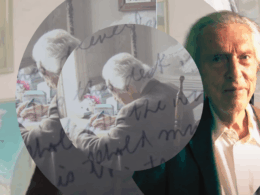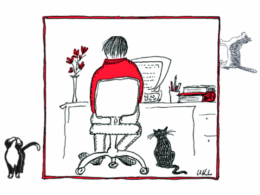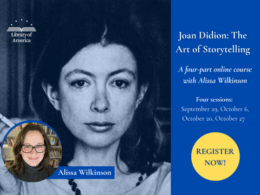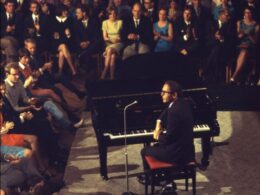The following remarks were given by Suzanne Vega at LOA’s 40th anniversary gala reception on May 1, 2023. For more on the event, including videos, photos, and transcripts of featured speeches, click here.
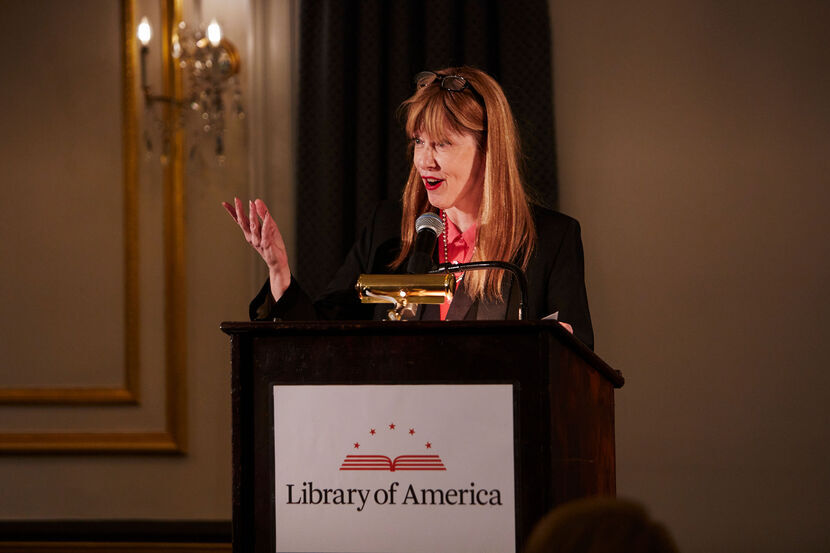
I’ll speak for a few minutes about my longstanding love for the great Southern writer Carson McCullers. I was attending Barnard College, studying English literature and theater. I was given an assignment of choosing a person who was no longer alive from the world of the arts and coming in the next day dressed as that person and ready to answer questions as though I were on TV.
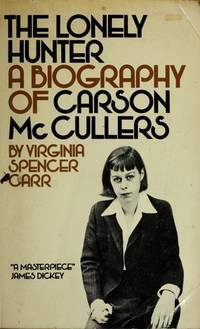
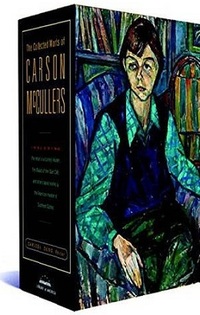
I worked many jobs back then, and one was as an assistant librarian, where I put books back on the shelves after they had been borrowed (if I wasn’t sitting on the floor reading them). This was in the 1970s, and the wonderful biography of Carson McCullers by Virginia Spencer Carr had just been released. I was struck by the portrait on the cover. It was of a tall, boyish girl with blunt-cut bangs, a little jacket, a Brooks Brothers shirt, with the saddest eyes I had ever seen. I remembered this image and sought out the book.
I had only read one piece of writing by Carson McCullers at that time. It was called “Sucker.” It was a short story about two boys. One seeks the love and friendship of the other, who treats him badly and calls him “Sucker.” Over the course of the story, the tide turns the other way.
I love her because she was tough and yet so fragile and needy, and sometimes cruel in her private life. And we need her work today more than ever.
I thought it was a great story. I couldn’t wait to read more of this guy, Carson McCullers, whoever he was. But here she was, on the cover of this 700-page biography. I took the book out of the library and read as much as I could overnight. I picked out a little jacket and then bought a pack of cigarettes and swaggered into class the next morning, ready to field questions.
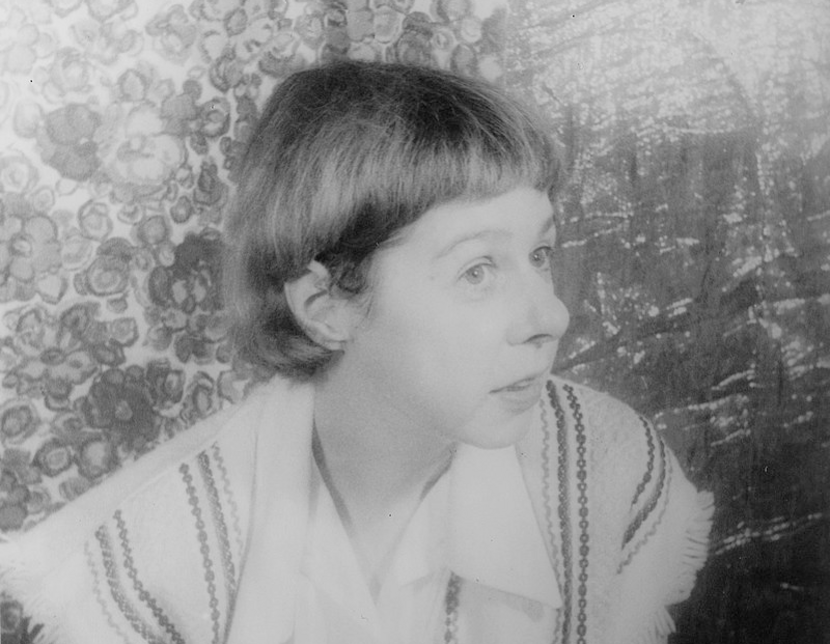
Her gin-drinking, smoking, bisexual persona was heady stuff for a nineteen-year-old, and I ended up writing a half-hour one-woman show based on her life and her work as my senior thesis in 1981. This was way before my first record deal.
This was a project I revisited throughout the decades. The play Carson McCullers Talks About Love came out in 2011. I rewrote the whole thing, and the final version of the play was called Lover Beloved, and that had its premiere in 2018 in Houston, Texas. It was made into a film directed by Michael Tully in 2019.
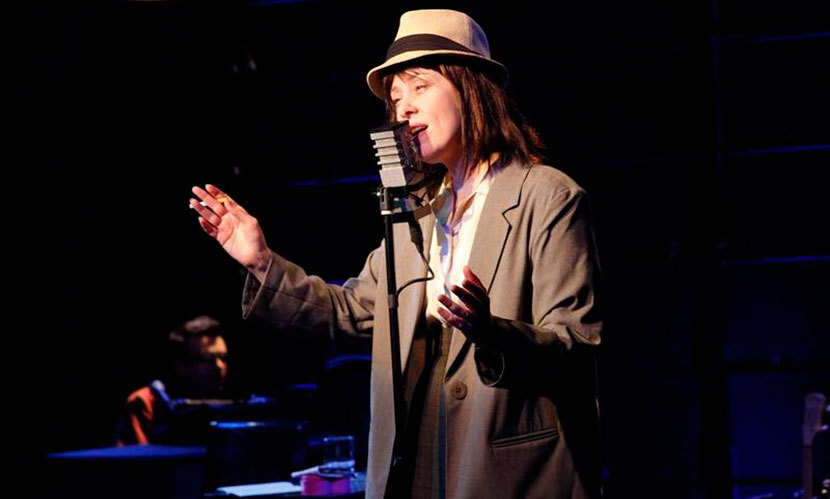
I have always found Carson McCullers to be a singularly modern sensibility, regardless of what era I was working in. I love her for her compassion, her empathy, her eye for detail, especially regarding children. And I love her for her unsentimentality. I love her for her prescient vision of the Civil Rights era back in 1940 in The Heart is a Lonely Hunter, published when she was only twenty-three years old. I love her because she was tough and yet so fragile and needy, and sometimes cruel in her private life. And we need her work today more than ever.
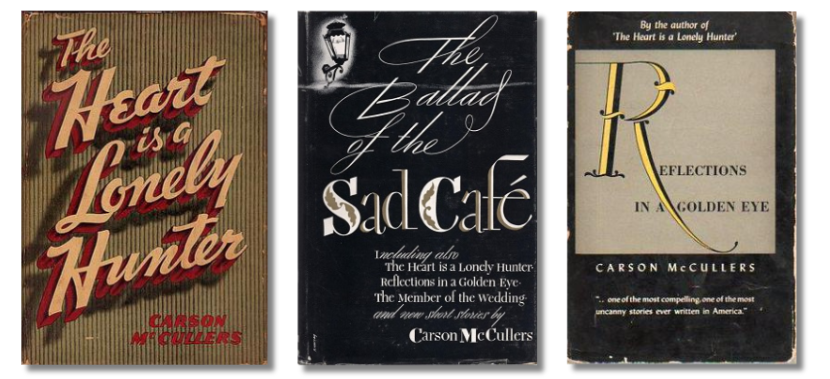
Now I’d like to amuse you, hopefully. I’m going to pretend that this song is actually a dramatic monologue, and I’m going to tell you all about McCullers’s feelings about other writers of her generation, and especially about Harper Lee. This is meant to be a tribute, and even though Carson McCullers could be very shy and very humble, she also sang her own praises very well. So I’d like to do that for you now:
Virginia Woolf
She leaves me cold
I recognize the genius
But I’m twice as boldI have more to say
Than Hemingway
Lord knows, compared to Faulkner
I say it in a better wayGraham Greene
He loves me
He loves my poetic
SensibilityKatherine Anne Porter
Might be the best one now
But in about a year
I’m gonna show her howYes I will
Said to Reeves the other day
Proust really is the man
Who comforts me in a way
No other writer canThe timeless quality of the work
The length! Is very long
Believe me Marcel Proust goes on
And on and on and on.Oh, Harper. Harper
Lee. Lee. Lee
She only wrote that one book
I’ve written more than threeDarling Tennessee Williams
It’s anybody’s guess
Why Streetcar made millions
And Wedding so much lessI will forever be pondering that one
Oh, Harper. Harper
Lee. Lee. Lee
Why do they always compare her to me
To meWon’t even talk about
Eudora Welty
As for F. Scott, my Sad Café
Is greater than his Gatsby
I’m just telling you
What someone told me they read
I never look at my reviews
They might give me the big head
Now Truman Capote was hypnotized
Mesmerized. Cause he realized
That I knew that he knew
That he had plagiarizedMy cadences!
Imagine his surprise,
You’ll see it in his eyes
When I win that Nobel PrizeThank you. Thank you so very much
Harper. Harper
Lee. Lee. Lee
Why do they always compare her to me
To meShe always seems to be receiving
More than she deserves
Honey, she’s poaching on
My literary preservesYes from Harper Lee
We have seen and we’ve heard and
I’d like to kill more than just
That mocking birdYou know, sometimes I really would
So you just wait until next year
Suzanne Vega’s critically acclaimed songs have been international chart-toppers, including her distinctive and instantly recognizable classics “Marlene on the Wall,” “Luka,” and “Tom’s Diner.” She has released nine studio albums, among them Lover, Beloved: Songs from an Evening with Carson McCullers, based on the one-woman play Carson McCullers Talks About Love, which she wrote and starred in, with music by Duncan Sheik. Her book The Passionate Eye collects lyrics, poems, and journalism. She is a longtime Library of America subscriber.
